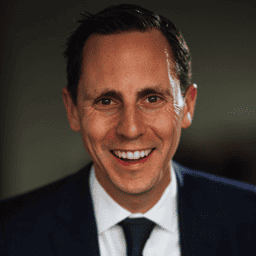In my last column, we talked about how to filter potential candidates by posting a very specific application process, reviewing resumes and conducting a quick 15-minute interview to rule possible candidates out.
After you’ve been through all of these filtering efforts, if there are still candidates to meet with for an interview, you can start scheduling in-person meetings. Ideally, you can meet the candidate in person at a place of your choosing, but you might have to schedule another Zoom interview if they are relocating from another area.
Format of an in-person interview
My strong preference is to schedule interviews early in the morning. I want to see how people are at the beginning of their day. And I want to test them for their ability to plan. Commuting in the morning can be a time-consuming challenge — their ability to show up on time highlights their ability to plan for something that is possibly outside their comfort zone. As an added bonus, a 7:45 am meeting will still give the candidate enough time to get to their other job if they have one.
I will typically review the resume the day before the interview and create a list of questions. Some of the questions are pretty typical, but others are specific to the candidate and their job history, interests or skill set.
When someone shows up for an interview, I am looking to see if they are on time, rushed, early or late. Are they dressed appropriately for the job? Are they comfortable and excited or shy, dismissive or nervous? I am looking to make a connection with a candidate who is friendly, skilled for the job I am hiring for, and confident.
I invite them into our interview space (office, board room, lounge) the way I would bring in a client. I offer drinks, advise where the washroom is and make them feel welcome. I engage in small talk and then casually move into interview questions.
How to ask questions
The best interview questions come from a place of curiosity, not inquisition.
As realtors, we are naturally social people who like talking and selling ourselves. Neither of these are useful things when conducting a job interview. The key to a great interview is to ask the question and then shut up and listen to the answer. If there is silence after you’ve asked a question, just stay silent and let the candidate speak.
What questions to ask
Open-ended questions are the best way to elicit information from potential candidates as opposed to binary questions with only a yes/no option or only one potential response.
For example, “What experience do you have in the real estate field?” is better than “Do you have any experience in the real estate field?”
It’s also worth asking questions that are experiential, like, “Tell me about a time you had a stressful experience at work and how you handled it.”
If there are obvious gaps in the work history, you can ask the candidate to explain why. If they are currently working somewhere else, you can ask why they want to leave their current job; if they are unemployed, its probably worth asking why they left their last job.
“The ultimate rule when bringing on new people is to hire for culture, train for skill.”
Take some time before your interview to review the resume and google a list of possible questions. Then, write out your questions and have a notepad ready to go. There is no perfect list of questions to ask. The questions should be geared towards figuring out if the candidate has the basic skills to do the job that you created.
No candidate will be fully qualified for all the things you need them to do. The goal of a second interview is to figure out if someone has the right skill set to do the job while starting to figure out if they would be a right fit for your team.
If someone meets the criteria for doing the job, you’ll need to conduct at least one more interview to confirm that they also fit your culture. The ultimate rule when bringing on new people is to hire for culture, train for skill.
As a final tip, I want to share the one question I ask every candidate I interview. I ask it as a final question just as they are about to get up and leave. I put down my pen, close my notebook and say, “I just have one last question,” then I pause and ponder, “If I don’t hire you for this job, why do you think that would be?”
Then, I shut up.
Next week, we’ll explore what we’re looking for as a possible answer to this question as well as how to conduct a third interview to confirm culture fit.

Keith Roy is a REALTOR and Team Leader with Remax in Vancouver, BC. He has been selling real estate since 2006. Keith is a certified RRi trainer who has helped agents and team leaders on five continents. He lives near Kitsilano beach in Vancouver with his soulmate Stephanie and their toddler son, Kai. Keith is available for one-on-one agent consulting for team leaders and aspiring team leaders, and Vancouver real estate referrals.

















